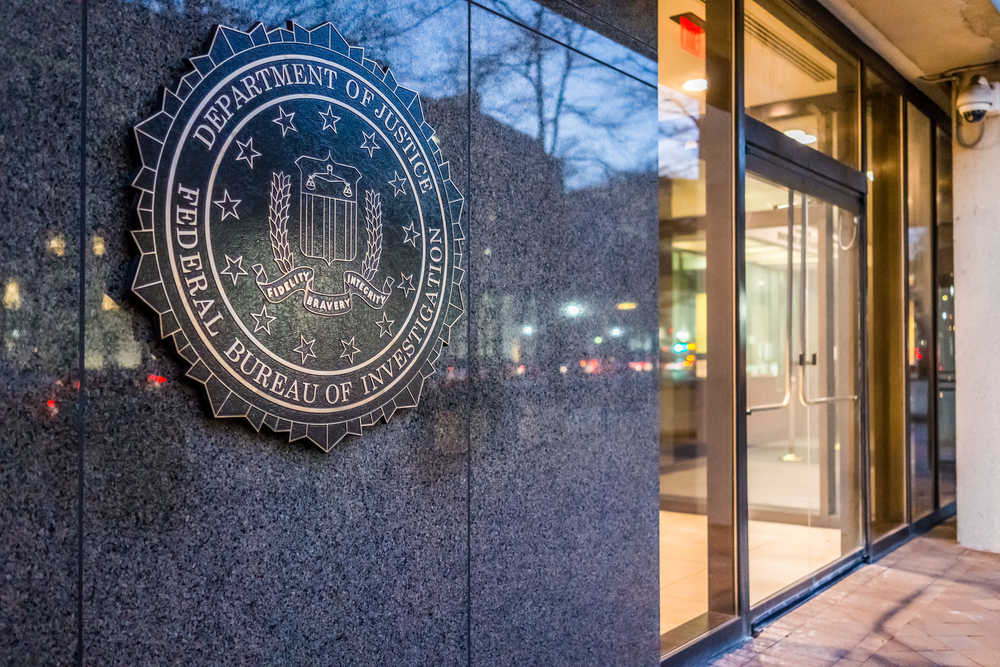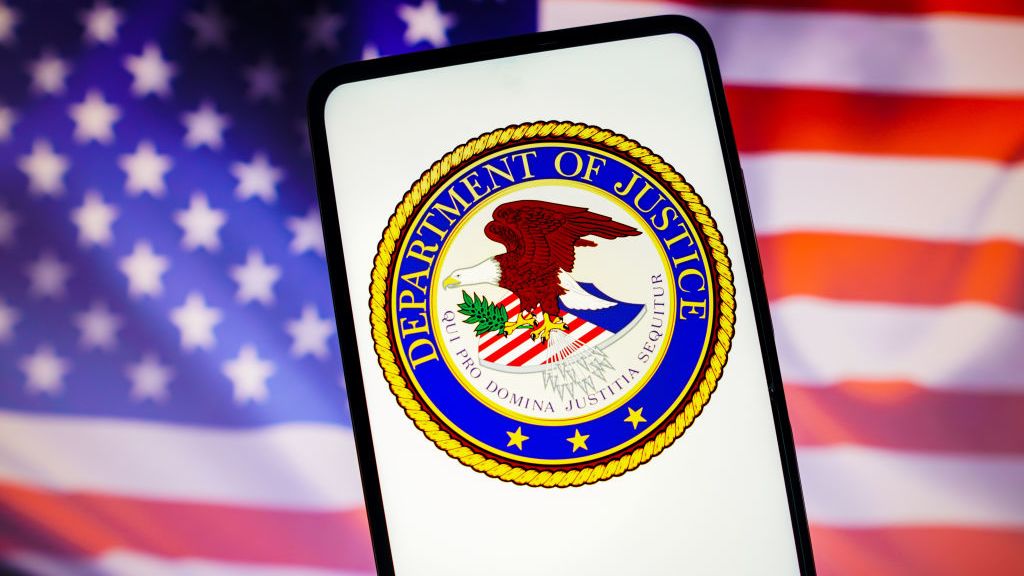FBI warns of hackers spoofing its domain
Bad actors could use these lookalike domains in disinformation campaigns


The FBI has warned citizens that hackers have set up copycat websites that spoof FBI-related domains.
In an announcement on the FBI’s Internet Crime Complaint Center (IC3) site, the law enforcement agency said it “observed unattributed cyber actors registering numerous domains spoofing legitimate FBI websites, indicating the potential for future operational activity.”
The agency identified dozens of spoofed FBI-related domains bad actors could use to trick unsuspecting users into entering personal information or downloading malware to their computers. The bureau hasn’t tied any country or cyber criminal gang to the spoofed domains.
"Cyber actors create spoofed domains with slightly altered characteristics of legitimate domains," the FBI said. It warned that members of the public could “unknowingly visit spoofed domains while seeking information regarding the FBI’s mission, services, or news coverage.”
“The FBI urges all members of the American public to critically evaluate the websites they visit, and the messages sent to their personal and business email accounts, to seek out reliable and verified FBI information,” the FBI said in a statement.
The FBI also provided recommendations to help the public spot these fake domains. The recommendations included verifying the spelling of web addresses, websites and email addresses, and updating operating systems and applications to the most current versions.
Carl Wearn, head of e-crime at Mimecast, told ITPro there’s a wide range of reasons for individuals or groups spoofing law enforcement or government websites.
Get the ITPro daily newsletter
Sign up today and you will receive a free copy of our Future Focus 2025 report - the leading guidance on AI, cybersecurity and other IT challenges as per 700+ senior executives
“These specific examples are likely to be the potential for monetary gain through credential theft, as online reporting of crime is a feature of the genuine FBI website. The motive could also be more sinister, with the potential misuse to spread disinformation, and/or to impact the credibility and trust that individuals have in any agency or department,” Wearn said.
Wearn added that spoofing or using law enforcement credentials to defraud or scam people has been a common fraudster tactic for a long time, even before the internet. Criminals seek to exploit the trust society places in these organizations and the enhanced likelihood of compliance with their instructions.
“Please ensure you go to any genuine website via your browser, and do not click on links in emails or other electronic communications which may take you to these fake or spoofed websites and steal your personal details or worse,” Wearn said.
Rene Millman is a freelance writer and broadcaster who covers cybersecurity, AI, IoT, and the cloud. He also works as a contributing analyst at GigaOm and has previously worked as an analyst for Gartner covering the infrastructure market. He has made numerous television appearances to give his views and expertise on technology trends and companies that affect and shape our lives. You can follow Rene Millman on Twitter.
-
 Bigger salaries, more burnout: Is the CISO role in crisis?
Bigger salaries, more burnout: Is the CISO role in crisis?In-depth CISOs are more stressed than ever before – but why is this and what can be done?
By Kate O'Flaherty Published
-
 Cheap cyber crime kits can be bought on the dark web for less than $25
Cheap cyber crime kits can be bought on the dark web for less than $25News Research from NordVPN shows phishing kits are now widely available on the dark web and via messaging apps like Telegram, and are often selling for less than $25.
By Emma Woollacott Published
-
 UK cyber experts on red alert after Salt Typhoon attacks on US telcos
UK cyber experts on red alert after Salt Typhoon attacks on US telcosAnalysis The UK could be next in a spate of state-sponsored attacks on telecoms infrastructure
By Solomon Klappholz Published
-
 Healthcare data breaches are out of control – here's how the US plans to beef up security standards
Healthcare data breaches are out of control – here's how the US plans to beef up security standardsNews Changes to HIPAA security rules will require organizations to implement MFA, network segmentation, and more
By Solomon Klappholz Published
-
 The US could be set to ban TP-Link routers
The US could be set to ban TP-Link routersNews US authorities could be lining up the largest equipment proscription since the 2019 ban on Huawei networking infrastructure
By Solomon Klappholz Published
-
 US government IT contractor could face death penalty over espionage charges
US government IT contractor could face death penalty over espionage chargesNews The IT pro faces two espionage charges, each of which could lead to a death sentence or life imprisonment, prosecutors said
By Ross Kelly Published
-
 US identifies and places $10 million bounty on LockBit, Hive ransomware kingpin
US identifies and places $10 million bounty on LockBit, Hive ransomware kingpinNews Mikhail Pavlovich Matveev was linked to specific ransomware attacks, including a 2021 raid on the DC police department
By Rory Bathgate Published
-
 Breach at US Transportation Department exposes 240,000 employee records
Breach at US Transportation Department exposes 240,000 employee recordsNews An investigation is underway into the breach, which affected former and current employee data
By Rory Bathgate Published
-
 IRS mistakenly publishes 112,000 taxpayer records for the second time
IRS mistakenly publishes 112,000 taxpayer records for the second timeNews A contractor is thought to be responsible for the error, with the agency reportedly reviewing its relationship with Accenture
By Zach Marzouk Published
-
 US begins seizure of 48 DDoS-for-hire services following global investigation
US begins seizure of 48 DDoS-for-hire services following global investigationNews Six people have been arrested who allegedly oversaw computer attacks launched using booters
By Zach Marzouk Published